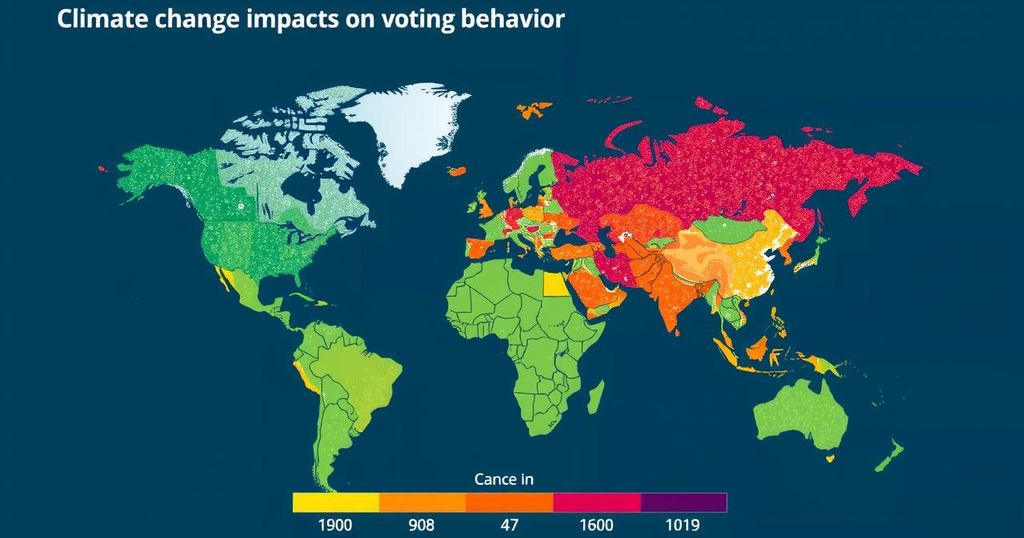Research by Lawrence Hamilton indicates that climate change awareness has stalled post-pandemic, largely due to misinformation. He points out that personal identity is closely linked to voting behavior regarding climate issues, particularly among older voters. Younger individuals exhibit more concern about climate change and its human causes, which may influence future elections.
Recent research conducted by Lawrence Hamilton, a scholar from the University of New Hampshire specializing in public perceptions of climate change, reveals that recent environmental disasters are unlikely to influence voting behavior significantly. Hamilton notes that, while awareness of climate change had been on the rise in the United States, this trend has slowed post-pandemic, largely due to an increase in misinformation about climate science and government intervention. He explains that the connection between personal identity and attitudes toward climate change complicates electoral influences, especially among voters aged 30 and older, who exhibit stronger ties to their beliefs than younger individuals. Hamilton further identifies that younger generations tend to acknowledge human responsibility for climate change and express heightened concern over escalating environmental threats. This generational difference may lead to a more substantial impact of climate issues on future electoral outcomes, particularly in the Mountain West region, as public concern transitions into voting behavior.
This article discusses the relationship between climate change awareness and electoral behavior in the United States, particularly as researched by Lawrence Hamilton. He provides insight into how misinformation and identity politics affect voter attitudes towards climate-related issues. The distinction in perspectives between different age groups, especially the younger generation’s view on humanity’s role in climate change, is also explored, indicating a potential shift in future electoral trends regarding environmental policies.
In summary, while the impact of climate change and related disasters on voting behavior currently appears minimal, factors such as misinformation and the intertwining of personal identity with political beliefs play significant roles. Younger generations show increasing concern and acknowledgment of human influence on climate issues, hinting at a potential shift in electoral dynamics that may favor environmentally conscious policies in the future.
Original Source: www.kanw.com






